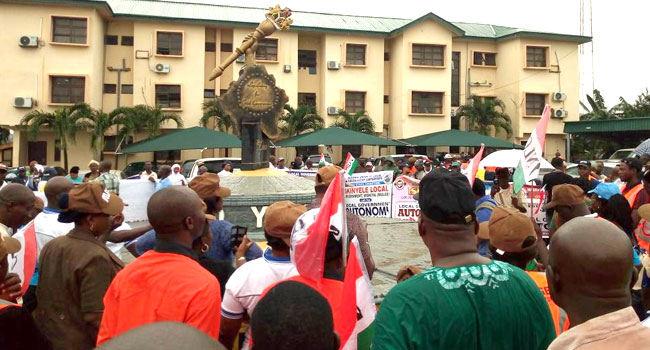
The Nigeria Union of Local Government Employees (NULGE) has called for a 300% increase in the minimum wage for workers across all sectors due to the inflation caused by the removal of fuel subsidy.
POLITICS NIGERIA reports that NULGE National President Ambali Olatunji said the increase was necessary to “cushion the effect of economic policies on citizens.” He also called for a state of emergency to be declared on local government administration, saying that the overbearing posture of state governors had left local governments “prostrate” in the country.
Olatunji said that the government should create a special intervention fund to take care of social welfare and infrastructural decay in local governments. He also called for the establishment of a special agency to collaborate with local governments in administering the fund.
The NULGE president also urged the government to utilise 800 million dollars from the World Bank to provide mass transit and other interventions to cater to the transport needs of the masses. He also advised the government to give tax rebates/holidays for low-income earners and small-scale entrepreneurs.
Olatunji condemned the attacks on local government secretariats in Plateau, Anambra, Abia and Enugu states by gunmen and called for the urgent reopening of the 17 local governments in Plateau that have been shut down as a result of an alleged political crisis.
He also urged the Secretary to the Government of the Federation to expedite action on the scheme of service for the local government.
“It is the conviction of the union that autonomy for local governments remains the best way to return the country to the part of development and growth,” Olatunji said.
He also called for the establishment of Local Government Police (Community Police) to address the spate of insecurity across the country.
Olatunji further called for special rural allowances for local government staff to discourage rural-urban migration.
The NULGE president’s demands come as the government faces increasing pressure to address the rising cost of living in the country. The removal of fuel subsidy has been particularly debated, as it has led to higher prices for food, transportation and other essential goods and services.
